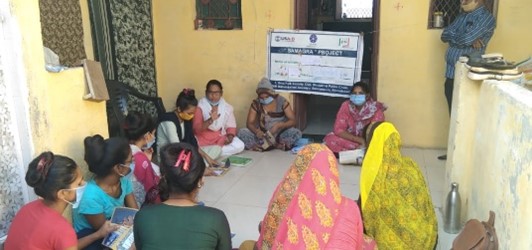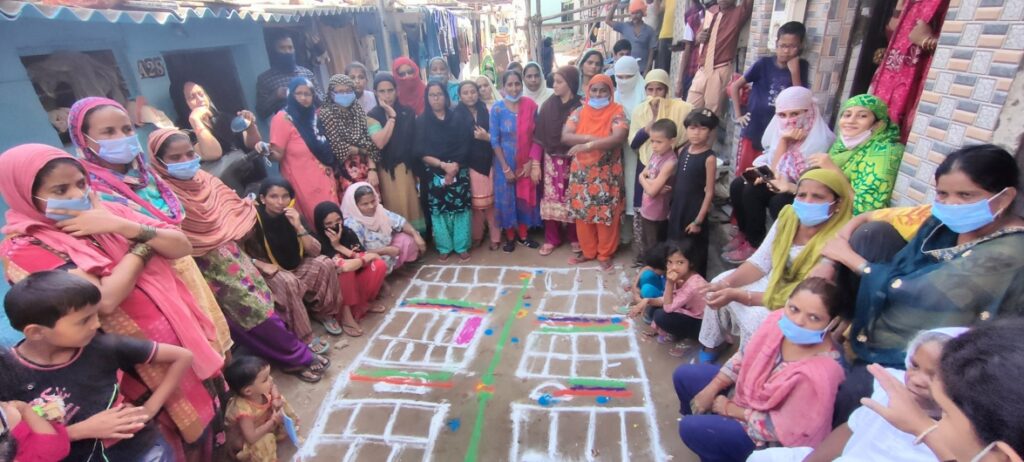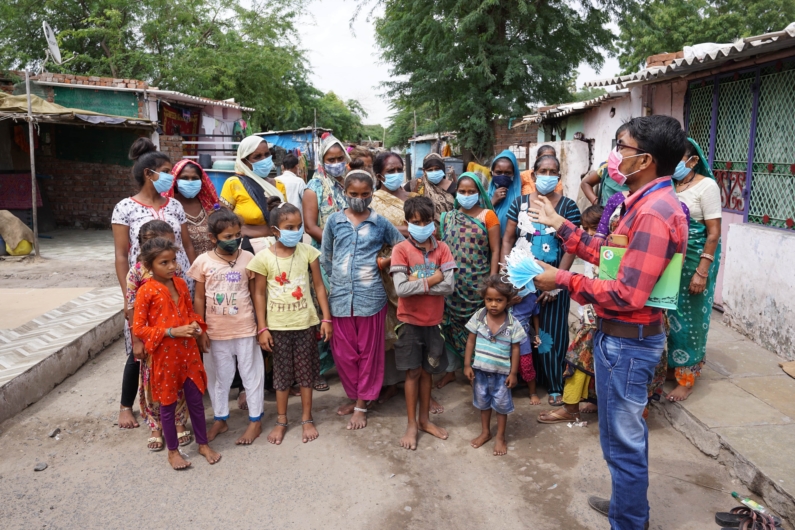Innovations
-
Innovations
The innovations page outlines the new initiatives launched by Saath and the future ones that are in planning and designing mode.
Mehnat Manzil
Mehnat Manzil is a Museum of Work celebrating the lives of people who work in the informal sector, bringing to light the realities they inhabit: from migration and livelihood to housing and infrastructure.
Mehnat Manzil aims to provide a space where this rich and bewildering reality may find expression. Where those that inhabit the informal domain may have their own stories heard and triumphs celebrated, while also coming to gain insights into how their lives figure into larger societal structures and their mechanisms. Conversely, a space where those who are privileged enough to be oblivious of these issues may come to appreciate how vital is the contribution made to society by informal work. Where they may see the complexity of the problems that are involved, and dispel pre-formed and misleading notions about their nature.
The museum is a collection of art, artifact, and testimony. By walking through the museum you will have the opportunity to listen to innumerable stories of incredible human goodwill and fortitude, inspiring feats of collective action, and staggering innovation.
The museum is located at Bungalow No 1, Pathan Ni Chali, Near India Row Houses, Opp. APMC Market Gate No.3, 132 Feet Ring Road, Guptanagar, Vasna, Ahmedabad 380 007
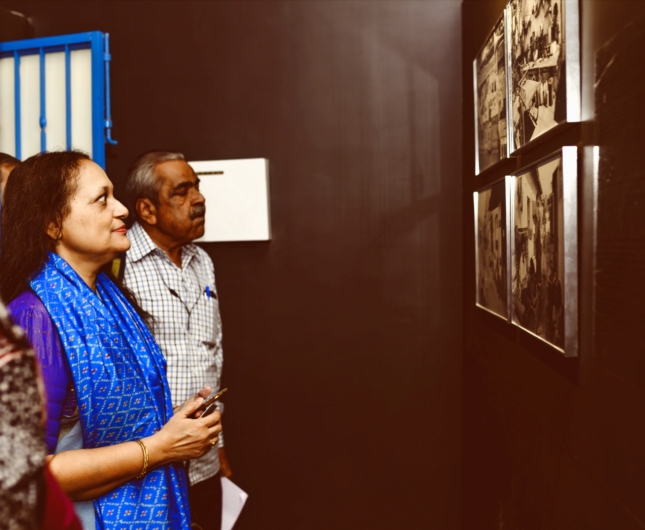
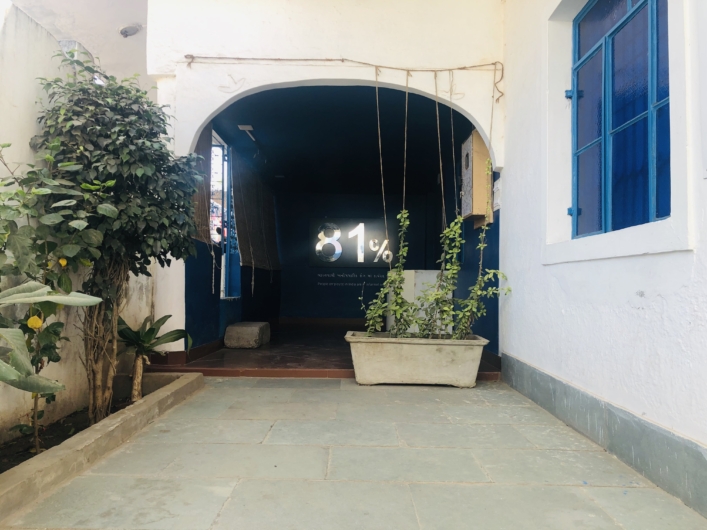
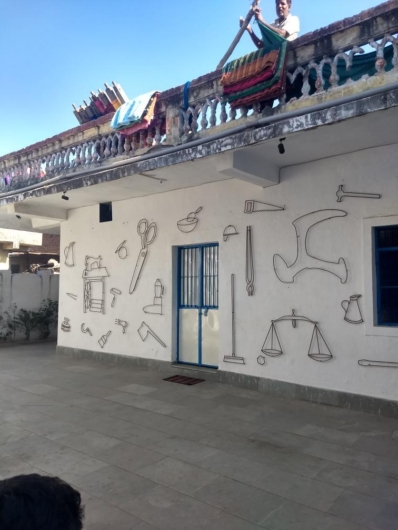
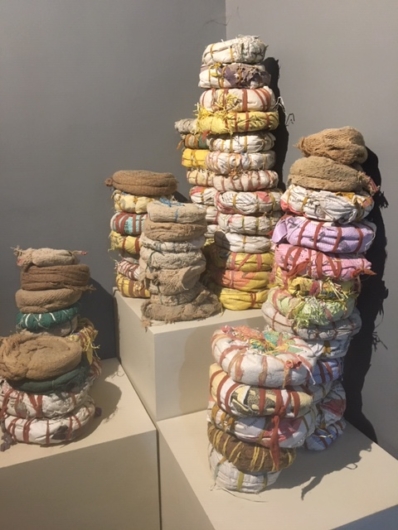
SMART CITIES BOOK
“SMART CITIES – BREAKING THE POVERTY BARRIER”, is a book that takes you through our 30 years’ experience of bringing social and economic change for vulnerable communities in cities and towns through innovative approaches and partnerships and touching 1.5 million lives.
The book gives you an overview of an attempt by Saath that brought socio-economic change for vulnerable communities through innovation and building capacities of people.
About the Author – Rajendra Joshi a social entrepreneur, has been doing development work in the urban and rural poor in India through Saath, the NGO he founded in 1989.
Hard Copies
- https://www.amazon.in/dp/1647335280
- https://www.flipkart.com/smart-cities/p/itm1807fda1d1d75
- https://notionpress.com/read/smart-cities
- https://www.amazon.com/dp/1647335280/ref=sr_1_1?keywords=9781647335281&qid=1575606531&sr=8-1
- https://www.amazon.co.uk/dp/1647335280/ref=sr_1_1?keywords=9781647335281&qid=1575606534&sr=8-1
eBooks
- https://www.kobo.com/in/en/ebook/smart-cities-16
- https://play.google.com/store/books/details/Rajendra_Joshi_Smart_Cities?id=fdjEDwAAQBAJ
- https://books.apple.com/us/book/smart-cities/id1492274195?ls=1
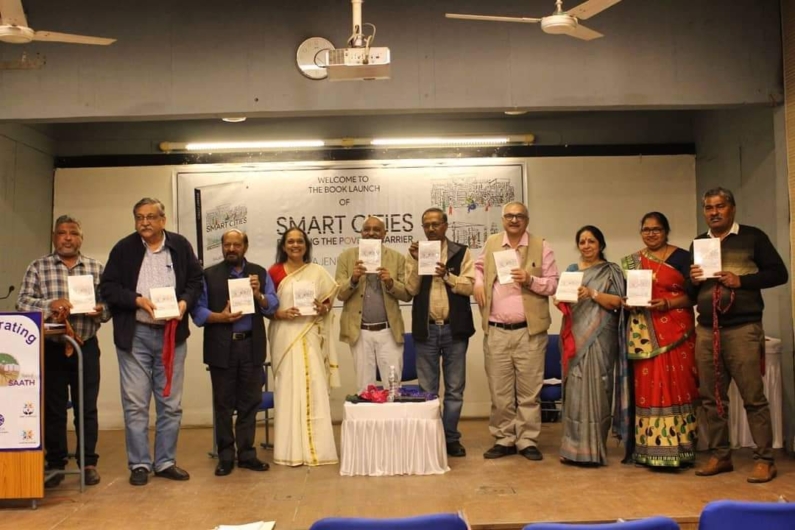
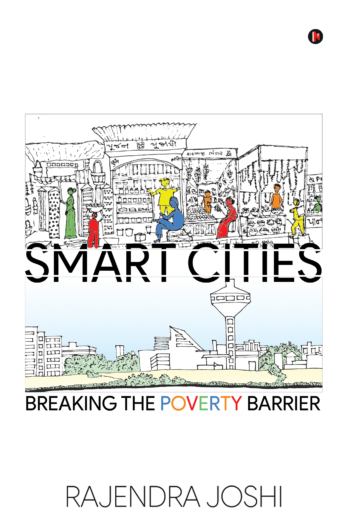
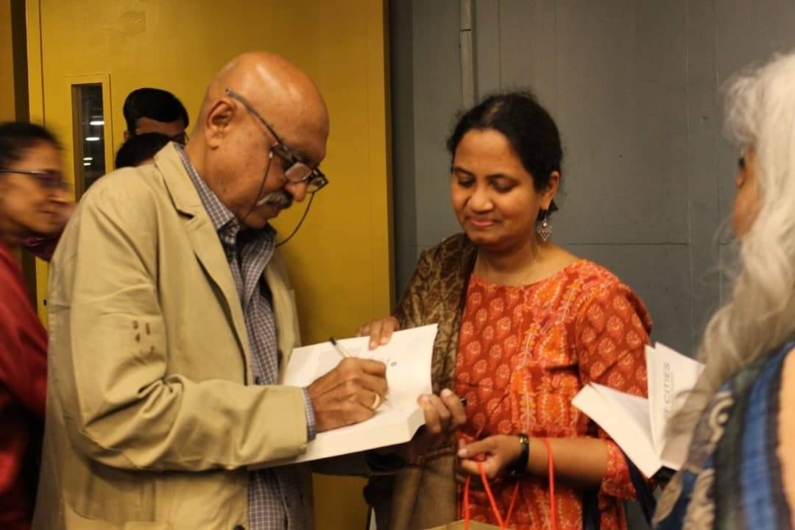
Women Drivers
The proposed project is about training women as drivers for them to get meaningful employment. Through the project women from weak socio-economic backgrounds will be selected and provided training in driving of cars and after the training placement opportunities will be found for them. By preparing and placing women drivers as professional drivers, the programme will enable socially excluded female members of the society to move from the margins to mainstream economy.
The women will be provided Entrepreneurship training as well for them to start their own ventures if they want after the completion of training.
Integrated Services for Migrants
Saath is running Child Friendly Spaces classes for construction workers and Nirman training project for construction workers. The Integrated project will combine elements of both the above projects with additional components to give a complete solution to migrant workers coming to work at the construction sites. The project will select a construction site with minimum 50-100 labourers and carry out skill enhancement training for them to upgrade their skills and increase their wages accordingly. Education classes will be run for workers children at the sites only providing them a safe and secure environment while the parents are working. The children will be provided education and nutrition support. The construction workers will also be made aware about the safety and regulations to be followed during working and will be provided support by Saath’s Urban Resource Centres for their documentation. The construction site owner will provide space for running the training and classes and a nominal training fees will be charged for the workers as well to meet part cost of the project.
If you are interested in knowing more about any of the above mentioned projects or would like to support them, send us an email at mail@saath.org
Integrated Area Development
Need
Development is something that all habitants of an area aspire to, but one of the most critical areas that bears poor environment quality, high degree of informal settlements and activities, low income, social division and marginalization, poor quality and reach of infrastructure, poor connectivity to other areas is Vatva and its nearby areas. This area has recently become a part of the Ahmedabad Municipal Corporation city limits and therefore, the city and its systems have not reached these areas so far.
Our Intervention
Saath aims to bring about a city level network of institutions and individuals for the development of Vatva and the surrounding area.
The program will progress in three phases through an alternative approach in a bottom- top implementation with the timeline of 10 years.
- The phase 1 focusses on initiation, action, and empowerment with the key deliverables like setting up of an Urban Resource Centre, preparing participatory plans to improve the physical and social infrastructure of the area.
- The phase 2 shall focus on understanding of the stakeholders, upscaling of the program in different areas, and deep diving into the complex problems that are time consuming like working on land rights, climate change problems etc.
- The phase 3 shall focus on policy change and replication of the program to other areas.
Impact
Way Forward
- Community led and managed URCs covering 20,000 households established.
- Services provided through URCs to across various sectors to 20,000 households/individuals as per the sectoral goals chart.
- 40 active Community leaders trained and supported for working for their communities.
- Community led behaviour change seen across different sectors where the need is identified.
Gender Sensitization for Boys
- Solid Waste Management
- Local Governance
- Sanitation
- Health
- Education and its importance across age and gender
- The recognition of potential of community led URC as an institutional building block for organizing low-income communities and settlements.
- Bottom-up area development plans prepared and implemented, with local governance and communities as equal stakeholders.
- A demonstrable model for participatory urban planning and development in the context of the 74th amendment established and advocated for
- Recognition generated for the importance of participatory urban governance.
- Stakeholder network for local area development built and coordinated.
- Institutional support for program replication in phase 2 established.
